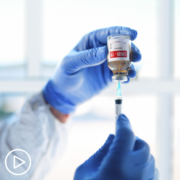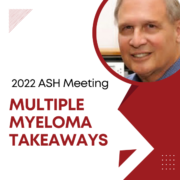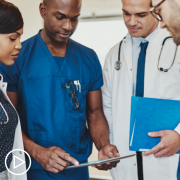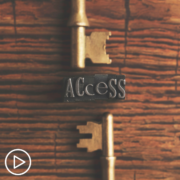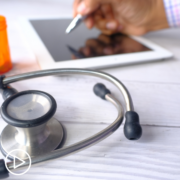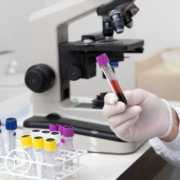Is the COVID Vaccine Safe and Effective for Follicular Lymphoma Patients?
Is the COVID Vaccine Safe and Effective for Follicular Lymphoma Patients? from Patient Empowerment Network on Vimeo.
Dr. Tycel Phillips discusses the efficacy and safety of the COVID vaccine for follicular lymphoma patients. Dr. Phillips reviews the effects it may have on patients and provides his expert advice.
Dr. Tycel Jovelle Phillips is a Medical Oncologist in the Hematology Clinic at The University of Michigan Rogel Cancer Center. Learn more about Dr. Phillips, here.
See More from The Pro-Active Follicular Lymphoma Patient Toolkit
Related Programs:

|
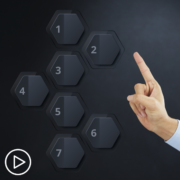
What Factors Are Considered When Choosing a Follicular Lymphoma Treatment? |
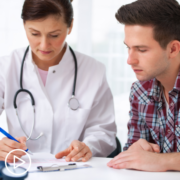
What Is the Patient’s Role in Follicular Lymphoma Decisions? |
Transcript:
Katherine:
Is the COVID vaccine safe and effective for follicular lymphoma patients?
Dr. Phillips:
So, the vaccine is safe. The effectiveness of the vaccine does in some part depend on whether the patients are untreated or they’re currently on treatment. Some of the treatments that we use to combat follicular lymphoma and other lymphomas unfortunately targets one of the key cells in the response to the vaccine. So, as follicular lymphoma is a cancer of the malignant B-cell, one of our treatments are directed, you know, obviously killing off malignant B-cells. And unfortunately, we do take some innocent bystanders. So, your normal B-cells will be impacted, which does sometimes impact your abilities to make antibodies.
But we do know from research that the vaccines will also trigger a T-cell response, which most of our treatments will not impact. So, well, we do recommend for our patients to be vaccinated. Because, again, it is safe. And, again, it is effective even if it’s not as effective as it would be if you weren’t on treatment.
Katherine:
Mm-hmm. Better to be safe than sorry.
Dr. Phillips:
Yes.

